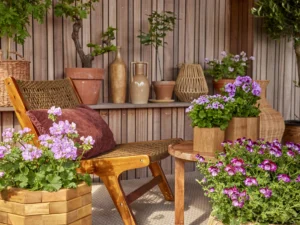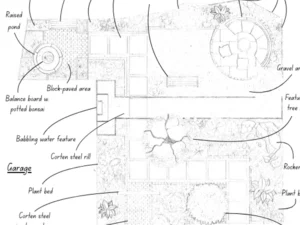With the rising cost of living crisis, many people in Norfolk are beginning to feel the financial strain. Households are looking for ways to manage their expenses, especially as daily necessities become more expensive. Amid this growing pressure, a focus on practical, home-based solutions is becoming increasingly popular.

What’s Happening?
Local residents are searching for simple, effective ways to reduce their financial burden. From lowering energy bills to cutting back on food shopping costs, people are turning to creative solutions. One surprising but impactful way to save money is by making the most of your own outdoor space.
Your garden offers an opportunity to cut costs by growing your food and optimising your outdoor space. Whether you’re planting fruits and vegetables, or simply organising your garden for better efficiency, a well-maintained garden can significantly ease household expenses.
What You’ll Learn
In this guide, you’ll discover beginner-friendly tips on garden design, landscaping, and how to grow your own food, helping you make the most of your outdoor area. With expert advice from Norfolk Garden Services, you’ll see how simple adjustments can have a big impact on your savings and your garden’s productivity.
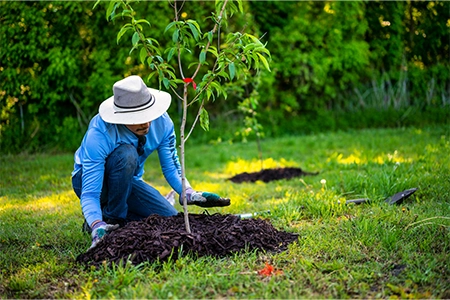
Grow Your Own Food to Cut Food Shopping Bills
Growing your food at home is a fantastic way to enjoy fresh, nutritious produce while reducing food expenses. Homegrown vegetables not only provide better flavour and quality but also contribute to a more sustainable living by minimising reliance on store-bought groceries. Whether you have a large garden or a small balcony, there’s an option for everyone.
Why Grow Your Own Food?
Homegrown vegetables offer unmatched freshness and flavour. By harvesting straight from your garden, you can enjoy fruits and vegetables at their peak. Organic gardening practices also mean you’ll know exactly what goes into your produce, ensuring it’s free from harmful chemicals. Plus, growing your own food helps cut down on your food bills, making a real difference in reducing food expenses over time.
Easy Plants for Beginners
If you’re new to gardening in Norfolk, start with easy-to-grow plants. Vegetables like tomatoes, lettuce, and carrots are simple choices that thrive in most gardens. Herbs like basil, parsley, and mint require minimal care and are perfect for small spaces. Even fruits like strawberries and raspberries flourish in Norfolk’s climate, giving you a steady supply of fresh, homegrown produce throughout the season.
Getting Started
You don’t need a large garden to get started with organic gardening. Even small gardens or balconies can be productive with the right setup. Raised beds, pots, or containers allow you to grow vegetables in compact spaces, making gardening accessible for everyone. This approach is especially useful when practising sustainable living, as it helps you make the most of the space you have.
Tips for Success
To ensure a bountiful harvest, focus on proper soil preparation. Enriching your soil with compost will promote healthier plant growth. It’s also essential to follow a planting guide that aligns with Norfolk’s growing seasons to maximise your success. Regular maintenance, including watering and pruning, is key to keeping your garden thriving and producing homegrown vegetables throughout the year.
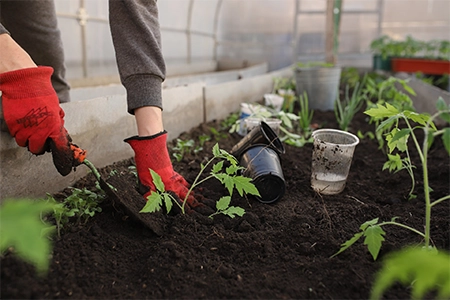
Easy Garden Design to Lower Energy Bills
Energy-efficient landscaping is a great method to make your home more comfortable while reducing energy costs. By strategically planting trees and shrubs, you can naturally regulate the temperature inside your home, keeping it cooler in the summer and warmer in the winter. This approach can significantly contribute to long-term savings on heating and cooling.
Stay Cool in Summer
Planting shade-providing trees around your home can greatly reduce the amount of direct sunlight hitting your walls and windows, preventing your home from overheating in the summer months. By cooling your home naturally, you’ll depend less on air conditioning. Creating areas of shade will also help with the cooling of the earth’s surface, which is a vital step needing to be taken in the war against climate change.
Optimal Placement
To maximise the cooling benefits, trees should be planted on the south or west side of your home, where they will block the most intense sunlight. Proper placement is key to ensuring effective energy-efficient landscaping.
Stay Warm in Winter
In colder months, wind-breaking shrubs can be used to protect your home from chilly winds and reduce heat loss. This helps to maintain a warmer interior environment, cutting down on heating costs. Expert advice from Norfolk Garden Services can guide you in selecting the best shrubs for wind protection, taking into account your garden’s unique characteristics.
Strategic Planting
Placing shrubs strategically around your home can make a big difference in shielding it from cold winds. Having a deep local climate understanding will help you position your plants where the most protection will be provided. This knowledge ensures that your garden works efficiently to support your home’s insulation during the winter months.
Save on Bills
By incorporating energy-efficient landscaping into your garden design, you can significantly reduce your heating and cooling costs. Investing in trees and shrubs now will lead to long-term savings, as they help regulate your home’s temperature year after year. Smart garden planning with Norfolk Garden Services ensures your outdoor space not only looks beautiful but also contributes to your home’s energy efficiency.
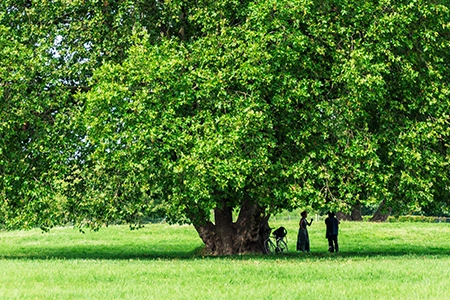
Simple Landscaping Ideas to Save Money
Landscaping your garden in a way that minimises upkeep can save both time and money. By incorporating low-maintenance plants and making strategic design changes, you can create an eco-friendly garden that reduces water usage and ongoing care costs.
Choose Low-Maintenance Plants
Opting for low-maintenance plants, especially native Norfolk species, such as the Cuckooflower, is a great strategy to ensure your garden thrives with minimal effort. These plants are naturally adapted to the local climate, meaning they require less watering and care.
Reduce Lawn Areas
Lawn care, especially mowing and watering, can be time-consuming and costly. By reducing the size of your lawn and replacing sections with flower beds, patios, or gravel paths, you can create a garden that is both functional and low-maintenance. A Garden redesign can help transform your space to suit your lifestyle, with less focus on upkeep and more on enjoyment.
Use Mulch
Mulching benefits your garden in many ways, from retaining soil moisture to suppressing weeds. By applying mulch around your plants, you not only reduce the need for frequent watering but also cut down on time spent weeding, which helps with water conservation.
Cost Savings
Implementing these simple landscaping ideas leads to long-term cost savings. From reducing water usage with mulch to cutting down on lawn care with low-maintenance plants, small changes can add up over time. By investing in a well-planned, sustainable garden, you’ll enjoy reduced gardening costs and although a complete garden redesign is an option there are easy changes that you can make to boost your garden’s sustainability.
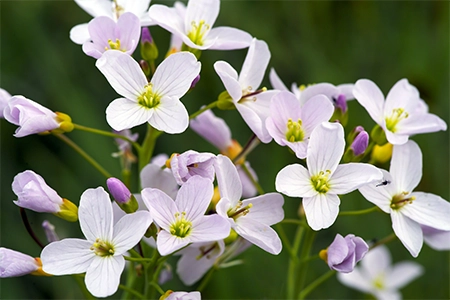
Sustainable Garden Design
Our in-house garden designer recently designed a stunning, sustainable south-facing garden, which belongs to a new-build home. South-facing gardens can often become overheated, are overlooked and have poor soil, making it difficult for both plants and homeowners to enjoy the space. The design focuses on creating a comfortable environment using shade-providing trees and drought-tolerant, low-maintenance plants that thrive in full sun.
This project highlights the importance of balancing aesthetics with practical solutions, such as incorporating water conservation features and carefully placed shaded areas. By utilising energy-efficient landscaping techniques, they have demonstrated how even the sunniest and smallest of gardens can be transformed into a cool, inviting space that supports sustainable living.
Key Features of the Design
- Water conservation opportunities have been included via the water butt and trough.
- The lawn area is limited so as not to waste valuable space but to still provide an easy access route through the garden.
- There is plenty of room for this client to grow their own vegetables.
- Features such as the patio have been left so as not to increase the cost of this project.
- The outdoor building is a combination of a greenhouse and potting shed so that it will provide the client with plenty of storage space and the perfect growing environment for new growth.
- The pleached Alder trees will provide shade within the garden. Alder was specifically chosen because it’s native to Norfolk and attractive to pollinators.
- The plant scheme will also be teaming with Norfolk Native perennials and shrubs.
- Raised beds and shrubs will also act as windbreakers.
- The composting area is the perfect spot to discard of any unused food produced by the garden. The compost generated can then be used to feed any future crops.
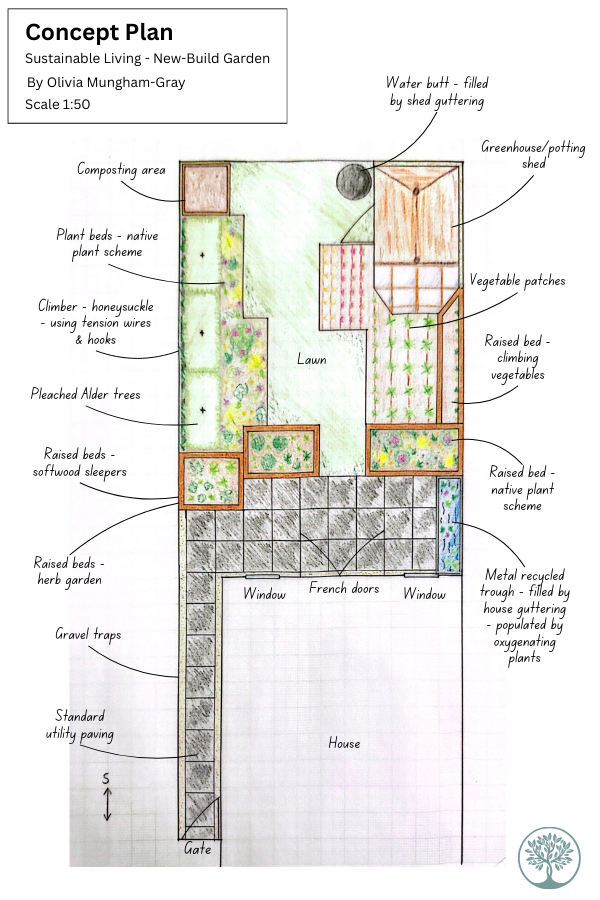
How Norfolk Garden Services Can Assist
If you’re unsure where to start, Norfolk Garden Services can provide expert advice and planning for your garden’s specific needs. From selecting the right plants to building raised beds or planters, we will help you make the most of your space. Our guidance will result in a productive garden that supports sustainable living and helps reduce your food shopping bills.
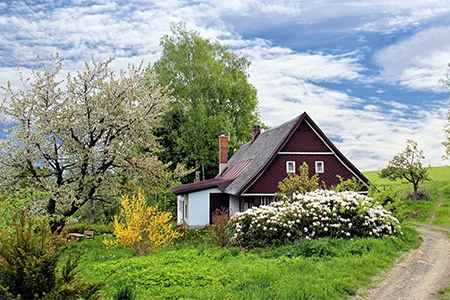
Further Reading
If you’re interested in making your garden more sustainable then below are some articles that may be beneficial to you:
- Raised Bed Planters – Create Beautiful Spring Borders
- A Wildlife-Friendly Garden: Harmful Features and Solutions
- Native UK Plants: Navigating the History and Oversea Influencers
- Nature’s Compass: a Journey Across North, South, West and East-Facing Gardens
- Water Management 101: Vital Role of Garden Drainage Solutions





